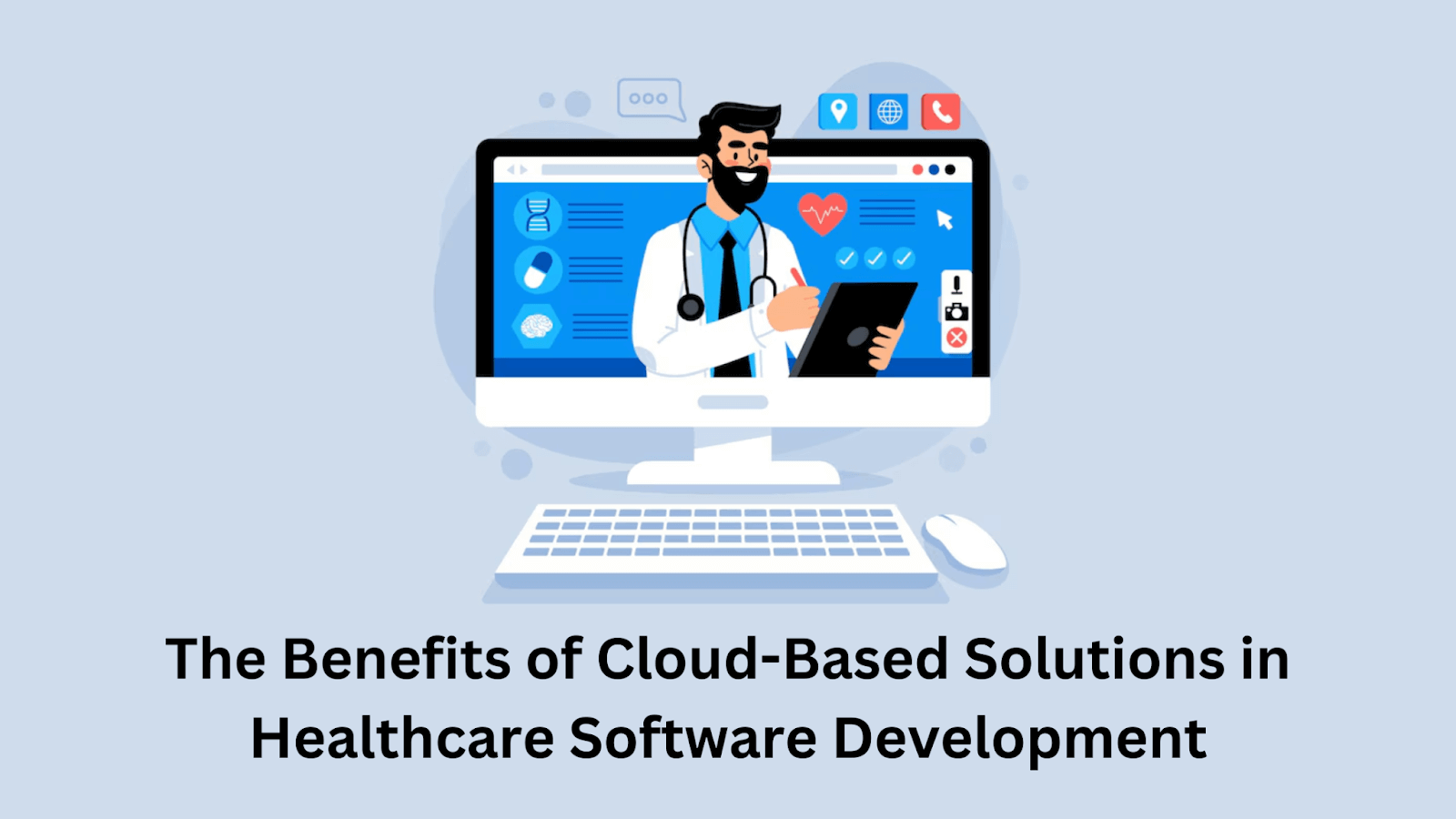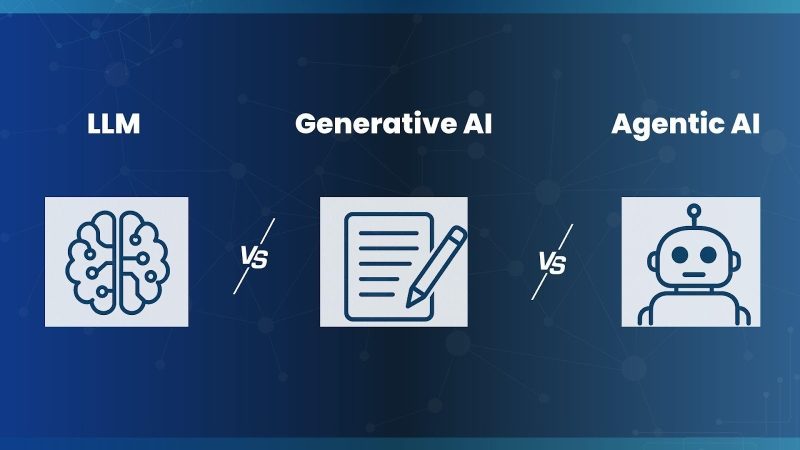The Benefits of Cloud-Based Solutions in Healthcare Software Development

Definition of Cloud-Based Solutions in Healthcare Software Development
Cloud solutions in healthcare software development mean that healthcare applications and data are hosted on the Internet using remote servers instead of their own IT infrastructure. These healthcare software development services help practitioners effectively handle patients’ information, coordinate the processes within a healthcare organization, and provide services more effectively and safely.
Cloud-based services in the healthcare setting have their significance and appropriateness.
Currently, healthcare is among the most progressive industries due to the impact of emerging technologies and patients’ rising expectation levels. Based on the literature review, cloud-based solutions are identified as critical elements in this process, which generate several advantages, including reduced costs and increased flexibility, better security for patient data, and overall positive patient outcomes. These solutions are applicable, especially when subjected to the current and continuously emerging global health crises, where out-of-reach and easily accessible healthcare services are crucial.
Types and Categories
Public Cloud
Public cloud services are offered through third parties using the Internet and are available to multiple organizations. They take comparatively less time to repair and maintain as the cost of resources is divided among the users, bringing down every firm’s overhead expenses. Some of them are AWS by Amazon, Microsoft Azure, and Google Cloud.
Private Cloud
A private cloud solution is an approach where a cloud environment is maintained for a sole organization. This makes the data control and applications more secure. They can be located wholly or partially within the organization’s IT environment or managed by a third party. This solution table for health care organizations, especially those with stringent regulatory policies and entity sensitive such as patient data that is Cloud. Hybrid cloud systems use both private and public cloud systems, enabling the organization to have the benefits of both environments. As such, this model performs well when there is a rotation between flexibility and optimization of the current architecture necessary for the required security level with healthcare providers who can’t afford high costs.
Community Cloud
Community cloud is used by organizations with similar demands and issues, including governmental or juridical bodies. This model is also widely used in healthcare consortiums or partnerships to organize the planning of data or application management and security or privacy measures.
Benefits of Cloud-Based Solutions
Cost Efficiency
Outsourcing minimizes the need for massive investment in physical assets because internet-based systems provide it. Healthcare organizations can also opt for operational expense schemes, thus paying only for consumed resources, significantly reducing costs.
Scalability
Healthcare providers can easily scale up or down their usage of cloud services, which cannot be said of in-house services. This is especially important when dealing with flows of work, such as during a threat like the COVID-19 pandemic, when the number of patients’ records received may increase.
Improved Collaboration
Cloud service helps medical practitioners easily share patient information and records regardless of their working location. This results in improved patient care and efficient time management by the physicians.
Enhanced Data Security
Cloud service providers use strict security features, such as encryption and authentication, to secure health records. Such measures often surpass the possibilities of using on-premise systems.
Disaster Recovery
Solutions offered in the cloud domain enable dependable disaster recovery solutions in the organization. The data is backed up and can be recovered in the event of failure or calamity, hence reducing down times and data loss incidences.
Also Read: What Are the Advantages of Blockchain in the Field of Healthcare?
Remote Accessibility
Healthcare providers can run applications or get data from an internet connection point from a local or remote location. This is incredibly effective for telemedicine and RPM at distinct patient care delivery apart from hospitals and clinics.
Real-time Data Analysis
The use of cloud platforms is one of the strengths of real-time data analysis; hence, healthcare providers can obtain better information from patient data. This capability improves the decision-making process and is a foundation for the concept of the right drug for the right patient.
Regulatory Compliance
Cloud service providers can provide support for solutions that will aid healthcare facilities in meeting their compliance standards, including HIPAA. These solutions contain tools and options that aim to ensure compliance with all legal requirements regarding data flows and storage.
Enhanced Patient Care
Thus, healthcare providers can enhance the level of personalized and efficient care by implementing cloud-based solutions. Comprehensive patient data can also help with protective measures and diagnostic, therapeutic, and communicative work with patients.
Streamlined Administrative Operations
Typically, cloud solutions also optimize the work of an organizer, including billing, scheduling, and records. This enhances service delivery and cuts health care staff’s workload, increasing efficiency.
Applications in Healthcare
Electronic Health Records (EHR)
EHR systems are indeed implemented as cloud-based solutions to help healthcare providers store, manage, and share records. They facilitate compatibility so that information can be easily transferred from one healthcare system to another.
Telemedicine
Telemedicine is built on cloud technology, enabling virtual consultations and care delivery. This helps increase the provision of health care, especially for those in distant or remote areas.
Patient Management Systems
These technologies help integrate patient data and organize appointment schedules in patients’ records, increasing service delivery quality.
Health Information Exchange (HIE)
HIE in the cloud enables different practices and medical facilities to exchange the necessary information about a patient safely. This leads to proper patient care and minimizes duplication of services in the patient’s treatment process.
Medical Imaging
Media-sharing storage services can store and share restrained and imperative medical images, including X-ray, MR, and CT images. Of course, this enhances healthy cooperation between medical professionals and ensures precise patient diagnosis.
Wearable Health Devices Integration
Wearable health device data is collected via cloud platforms to track and evaluate clients’ health states.
Remote Patient Surveillance
Cloud-based remote patient monitoring systems enable healthcare providers to continually manage patients’ conditions and prevent complications by providing real-time health monitoring.
Clinical Research and Trials
In clinical research, cloud solutions help in data acquisition, storage, and analysis by using reliable channels. This shortens the period it takes to conduct research and improves interaction between researchers.
Also Read: Exploring the Innovative Ways Tech Is Changing Healthcare
Challenges and Limitations
Data Privacy Concerns
Although cloud providers ensure highly secure service delivery, all the same issues regarding data privacy cannot be erased. In light of this, healthcare organizations must prove compliance with laws governing healthcare, go a step further, and safeguard patients’ records.
Dependence on Internet Connectivity
Cloud-based solutions involve the Internet, which needs to be efficient and always available. This is especially true in areas where internet connections are either a luxury or limited in availability, which presents a major problem.
Initial Setup Costs
Using cloud solutions minimizes the overall cost over a long period of time, but the cost of implementation and transferring the data may be high. Any organization in the healthcare industry should consider these costs since expenses should be well planned for, and cost estimations have to be incorporated into the organization’s financial plan.
Resistance to Change
Cloud technology integration can be resisted by organizational staff because they are used to previous conventional technologies. Thus, appropriate approaches must be employed to manage this resistance.
Technical Challenges
Applying cloud solutions to a company’s infrastructure and making them compatible with the systems already in place can be technically complicated. Countering these difficulties in healthcare facilities might require a commitment of technological personnel and resources.
New Trends and Future Development
The role that Integration of AI & Machine Learning plays
Artificial intelligence and machine learning have emerged as a well-known concept and are being programmed into cloud-based healthcare software solutions. These technologies improve the ability to create better prognoses, correct diagnoses, and individualized treatment.
Blockchain for Data Security
The use of blockchain in cloud-based health care systems has future prospects as it provides solutions regarding data security and integrity. That is why it offers the patient a decentralized and fully protected from manipulation method for storing records.
Internet of Medical Things (IoMT).
The Internet of Medical Things (IoMT) can also be described as the communication of medical devices over the Internet, creating an interconnect network of devices that share, receive, and transmit data in real time. These devices constantly transmit and receive data, facilitating the flow of information and monitoring. Central to this ecosystem is cloud computing, which offers the means for processing and warehousing the volumes of data produced by these devices.
Predictive Analytics
Predictive analytics use cloud computing to process big data and identify potential outcomes of treatment or ailment. This helps manage illnesses and health more efficiently before they happen and boosts patient care.
Conclusion
Cloud-based solutions present significant opportunities for healthcare software, including improved patient care, capacity, cost, and security. These include clinical research, remote patient monitoring EHRs, and telemedicine.
AI, machine learning, blockchain, and IoMT are expected to transform the healthcare landscape even more as the cloud becomes a dominant technology addressing eHealth demands. The future is bright. These developments will significantly value data security, individualized patient handling, and anticipatory statistical profiling.
Every healthcare software must adopt the latest trends in cloud computing and consider how these technologies can improve health service delivery. Cloud computing and continuing education must be embraced to enhance competitiveness and ensure an adequate supply of competent healthcare organizations.






